Japan faces deadline to free IS hostages
Updated: 2015-01-23 10:31
(Agencies)
|
||||||||
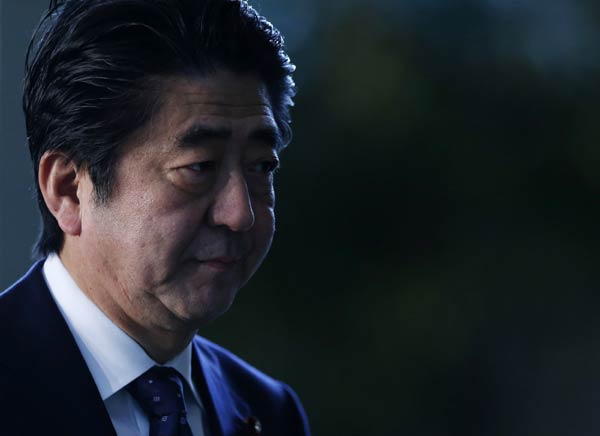 |
|
Japan's Prime Minister Shinzo Abe arrives at his official residence in Tokyo January 23, 2015. [Photo/Agencies] |
In his last communication with the Islamic State group several months ago, Tsuneoka said they had promised not to kill Yukawa or demand ransom.
"It's a desperate situation," Tsuneoka said. "I don't recall a hostage who survived after appearing on the video."
It is unclear if the two would be allowed to go to Syria, since they have been questioned by Japan's security police on suspicion of trying to help a Japanese college student visit Syria to fight with the Islamic State group.
Tsuneoka said they would contact the militants only with a go-ahead by the Foreign Ministry, and could possibly ask representatives of the Islamic State group to meet with them in Turkey.
Suga refused to comment directly on their offer, though he said Tokyo was "prepared to consider all possible ways to save the two hostages." Japanese officials have also not directly said whether they are considering paying any ransom, though Prime Minister Shinzo Abe said their lives were the top priority.
Nakata and Tsuneoka said their contact was with the Islamic State group's current spokesman, whom they identified as Omar Ghrabah. But they said police surveillance and harassment had prevented any communication with him since early October.
Abe's options are limited. Japan's military operates only in a self-defense capacity a home so any rescue attempt would require help from an ally like the United States.
Japanese media have reported that Goto's wife received an email in December asking for more than 2 billion yen ($17 million) in ransom, but it did not contain a threaten to kill Goto.
Abe has pledged $200 million in aid for refugees displaced by the fighting in Syria. In its ransom video, the Islamic State group accused Abe of providing money to kill Muslim women and children and destroy homes, a charge the Japanese government rejects.
Abe aims to raise Japan's global profile and shift to more pro-active diplomatic and security roles, but this crisis could make the public more wary of greater involvement in the Middle East and other global crises.
In 2004, militants captured a Japanese backpacker, demanding that Japan pull its troops out of humanitarian projects in southern Iraq. The government refused, and the backpacker was found beheaded.
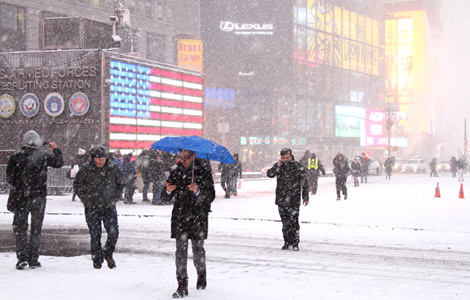
 Northeastern US braces for 'crippling' blizzard
Northeastern US braces for 'crippling' blizzard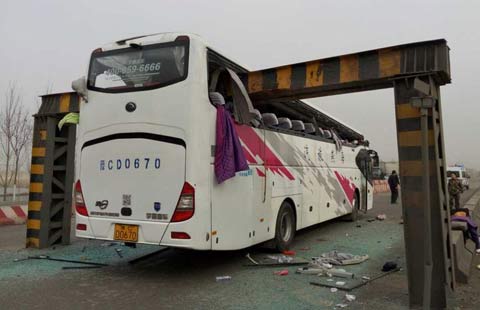
 At least 2 dead, dozens hurt after bus hits road barrier
At least 2 dead, dozens hurt after bus hits road barrier
 Red carpet of 21st annual SAG Awards in Los Angeles
Red carpet of 21st annual SAG Awards in Los Angeles
 New Year celebrated with dance mix
New Year celebrated with dance mix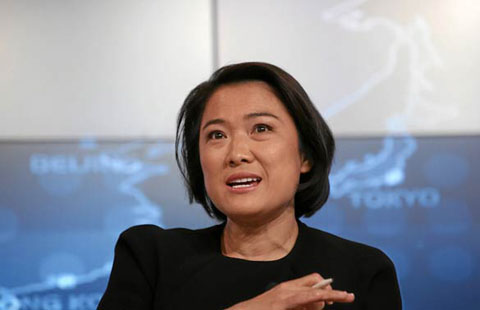
 Businesswomen shine at the World Economic Forum
Businesswomen shine at the World Economic Forum
 Dogs compete at the Siberean Cup
Dogs compete at the Siberean Cup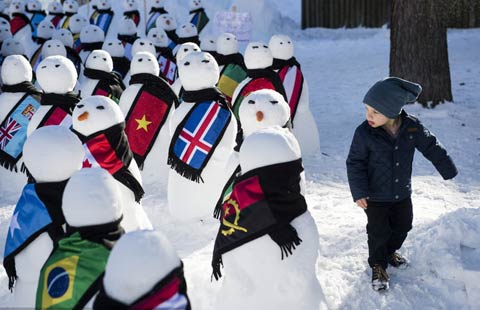
 The world in photos: Jan 19-25
The world in photos: Jan 19-25
 Drama with a twist
Drama with a twist
Most Viewed
Editor's Picks

|

|

|

|

|

|
Today's Top News
Beijing gears up for Super Bowl
Rock-Paper-Scissors: Paper wins
10 million new jobs on way in China, Li vows
Chinese plan NJ's tallest building
Obama's trip to India spurs triangle chatter
Motorola to make phones in Tianjin
High abortion rate triggers fears for young women
Small drone crashes on White House
US Weekly

|

|







